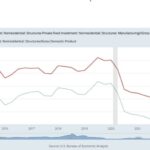
Retirement Insecurity – A Tale Of Two Retirements – CEOs And The Rest Of Us
Changing the rules that allow platinum pensions for CEOs and increase retirement insecurity for the rest of us
Co-published by the Center for Effective Government and the Institute for Policy Studies
Authors
Sarah Anderson directs the Global Economy Project at the Institute for Policy Studies and has co-authored 22 IPS annual reports on executive compensation. She serves on the Investment Subcommittee of the U.S. State Department’s Advisory Committee on International Economic Policy.
Scott Klinger is Director of Revenue and Spending Policies at the Center for Effective Government. He crafted the first shareholder proposals on executive pay while working as a social investment portfolio manager. Scott is a CFA charterholder.
Research Assistance: Jessica Schieder, Center for Effective Government, and Kaela Bamberger, Institute for Policy Studies.
A Tale Of Two Retirments – Key Findings
Company-sponsored retirement assets of just 100 CEOs are equal to those of more than 40 percent of American families.
The 100 largest CEO retirement funds are worth a combined $4.9 billion. That’s equal to the entire retirement account savings of 41 percent of American families (more than 50 million families and more than 116 million people).
On average, the CEOs’ nest eggs are worth more than $49.3 million, enough to generate a $277,686 monthly retirement check for the rest of their lives.
David Novak of YUM Brands had the largest retirement nest egg in the Fortune 500 in 2014, with $234 million, while hundreds of thousands of his Taco Bell, Pizza Hut, and KFC employees have no company retirement assets whatsoever. Novak transitioned from CEO to Executive Chairman in 2015.
Fortune 500 CEOs have $3.2 billion in special tax-deferred compensation accounts that are exempt from the annual contribution limits imposed on ordinary 401(k)s.
Fortune 500 CEOs saved $78 million on their 2014 tax bills by putting $197 million more in these tax-deferred accounts than they could have if they were subject to the same rules as other workers. These special accounts grow tax-free until the executives retire and begin to withdraw the funds.
The Fortune 500 CEOs had more in their company-sponsored deferred compensation accounts than 53.8 percent of American families had in their deferred compensation accounts.
Glenn Renwick, CEO of The Progressive Corporation, transferred $26.2 million of his pay into his deferred compensation account last year, the most of any Fortune 500 CEO. That reduced his income tax bill by more than $10 million in 2014.
Fifteen CEOs of major federal contractors can expect to receive monthly retirement checks that are larger than President Obama’s will be.
David Cote of Honeywell has the largest nest egg among major federal contractor CEOs, with $168 million. This will deliver him a monthly retirement check of more than $950,000—56 times larger than the $16,975 monthly check President Obama is set to receive after he leaves office.














